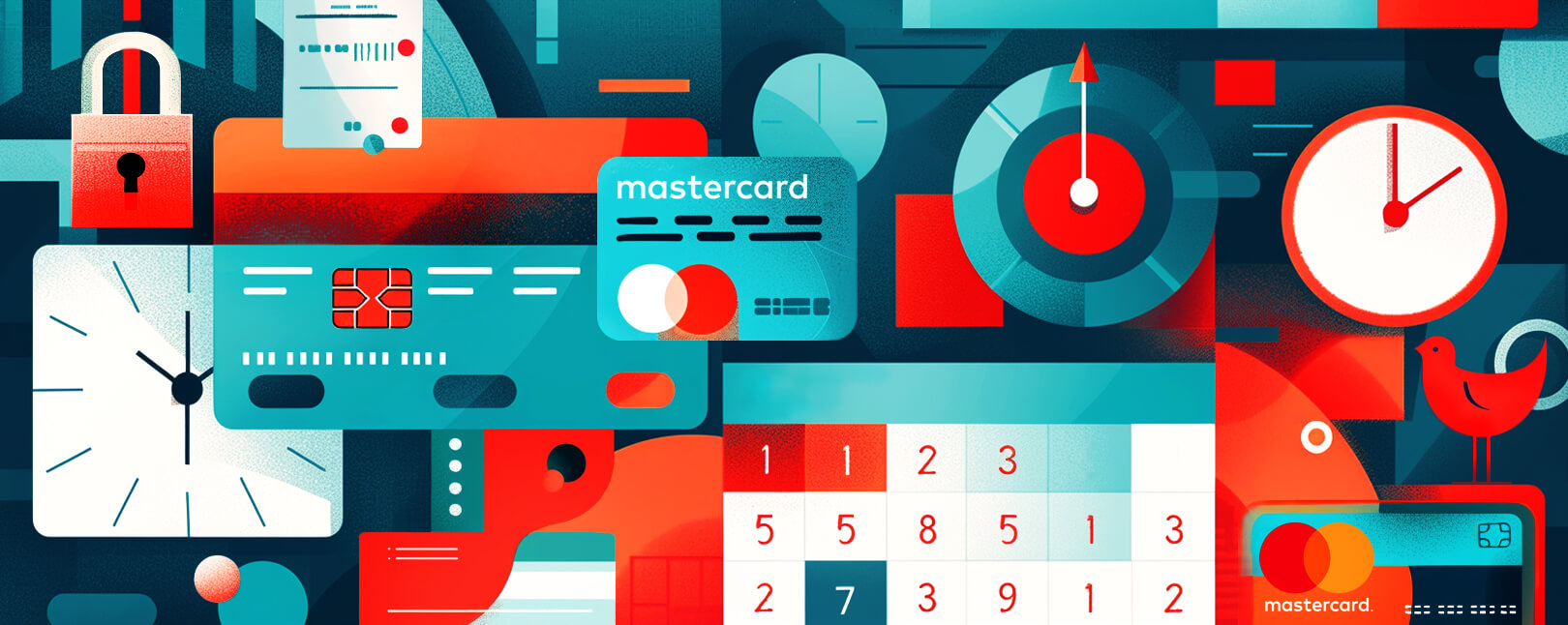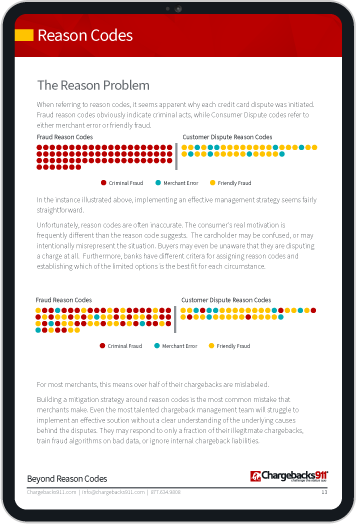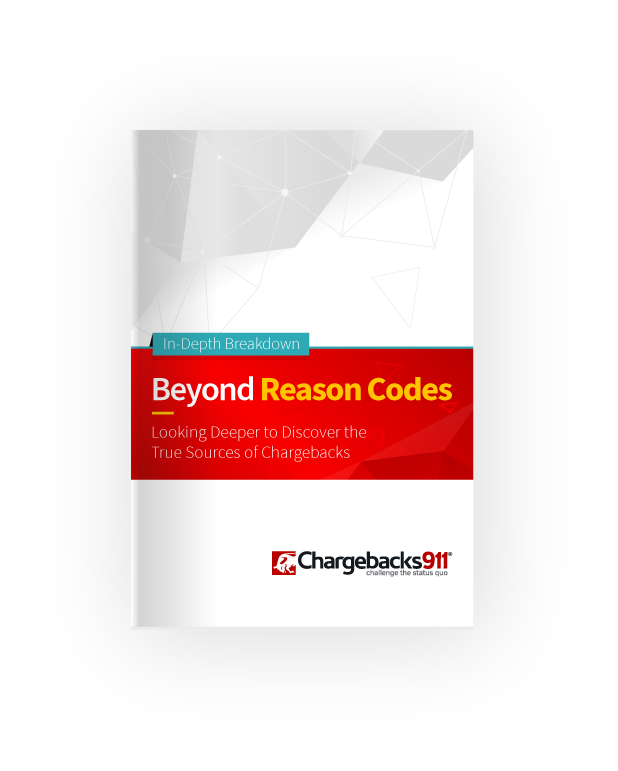What Consumers and Merchants Need to Know About Mastercard Chargeback Time Limits
Are you a merchant fighting an unfair chargeback claim? Or, are you a cardholder dealing with criminal fraud? In either case, Mastercard chargebacks come with built-in time limits you need to know about.
Merchants and consumers face strict time limits for each phase of the dispute. Miss one of these deadlines, and they risk their case being thrown out, no questions asked. If that happens, they lose any hope of recovering the money in question.
In this post, we’ll answer some of the most important questions about Mastercard chargeback time limits. What are the basic Mastercard time limits for merchants and cardholders? What Mastercard reason codes have different guidelines? And, why being aware of these time limits is important for both merchants and consumers.
Have more general questions about chargeback time limits, or want to see the rules for other card brands?
Learn More About Chargeback Time Limits
Recommended reading
- What is the Mastercard Chargeback Threshold?
- MasterCard DAF: The Dispute Administration Fee, Explained
- Mastercard Chargeback Rules: Guidelines & Procedures
- What are Mastercard Chargeback Fees? The Rundown for 2024
- How Mastercard First-Party Will Fight Video Game Disputes
- The Merchant's Guide to Mastercard Debit Card Chargebacks
How Long Do Cardholders Have to File a Mastercard Dispute?
The deadlines are pretty straightforward on the consumer side. From the original transaction or expected delivery date, Mastercard cardholders generally have no more than 120 days to file a dispute. There are situations in which the Mastercard chargeback time limit may be shorter or longer, which we’ll cover later in this post. In most situations, though, 120 days is the maximum.
How Long Do Merchants Have to Respond to a Mastercard Dispute?
The deadline for US merchants to respond in a Mastercard chargeback situation is 45 days. Note, however, that the time windows presented here don’t only apply to merchants. Other parties, such as acquirers and processors, may also have actions to perform in the same timeframe (more on this later).
The deadline for US merchants to respond in a Mastercard chargeback situation is 45 days. Note, however, that the time windows presented here don’t only apply to merchants. Other parties, such as acquirers and processors, may also have actions to perform in the same timeframe (more on this later).
Mastercard Chargeback Time Limits for Cardholders
Mastercard chargeback time limits are in place to guarantee the swift resolution of disputes and to avoid any unnecessary delays. These rules are outlined in the Mastercard Chargeback Guide.
Each Mastercard chargeback reason code has its own time limit. This outlines the specific timeframe in which a dispute filed using the reason code in question must be initiated. Not adhering to these time limits could lead to the inability to dispute the chargeback or recover the funds.
Here are all of the Mastercard chargeback time limits for cardholders, broken down by reason code:
Authorization-Related Mastercard Reason Code Time Limits
| Mastercard Reason Code | Description | Time Limit |
| 4808 | Warning Bulletin File | 90 Days |
| 4808 | Authorization-Related Chargeback | 90 Days |
| 4808 | Account Number Not on File | 90 Days |
| 4808 | Required Authorization Not Obtained | 90 Days |
| 4808 | Expired Chargeback Protection Period | 90 Days |
| 4808 | Multiple Authorization Requests | 90 Days |
| 4808 | Cardholder-Activated Terminal (CAT) 3 Device | 90 Days |
Point of Interaction Error Mastercard Reason Code Time Limits
| Mastercard Reason Code | Description | Time Limit |
| 4834 | Point of Interaction Error | 90 Days |
| 4834 | Transaction Amount Differs | 90 Days |
| 4834 | Late Presentment | 90 Days |
| 4834 | Point-of-Interaction Currency Conversion | 90 Days |
| 4834 | Duplication/Paid by Other Means | 120 Days |
| 4834 | ATM Disputes | 120 Days |
| 4834 | Loss, Theft, or Damages | 90 Days |
No Cardholder Authorization/Fraud-Related Mastercard Reason Code Time Limits
| Mastercard Reason Code | Description | Time Limit |
| 4837 | No Cardholder Authorization | 120 Days |
| 4849 | Questionable Merchant Activity | 120 Days |
| 4870 | Chip Liability Shift | 120 Days |
| 4871 | Chip / PIN Liability Shift | 120 Days |
Cardholder Dispute Mastercard Reason Code Time Limits
| Mastercard Reason Code | Description | Time Limit |
| 4853 | Cardholder Dispute of a Recurring Transaction | 120 Days |
| 4853 | Goods or Services Not Provided | Variable** |
| 4853 | No-Show Hotel Charge | 120 Days |
| 4853 | Addendum Dispute | 120 Days |
| 4853 | Credit Not Processed | 120 Days |
| 4853 | Goods/Services not as Described or Defective | 120 Days |
| 4853 | Digital Goods $25 or less | 120 Days |
| 4853 | Counterfeit Goods | 120 Days |
| 4853 | Transaction Did Not Complete | 120 Days |
| 4853 | Credit Posted as a Purchase | 120 Days |
Miscellaneous Mastercard Reason Code Time Limits
| Mastercard Reason Code | Description | Time Limit |
| 4850 | Installment Billing Dispute | 120 Days |
| 4854 | Cardholder Dispute Not Classified Elsewhere (US) | 120 Days |
**For Mastercard reason code 4853 (Goods or Services Not Provided), the timeline is generally 120 days, but may be based on different start dates. See the “Exceptions & Special Circumstances” section below for more information.
Mastercard Chargeback Time Limits for Merchants
Unlike cardholder time limits, which may vary depending on the reason code, the Mastercard chargeback time limit for merchants is 45 days. This same time limit applies to all Mastercard reason codes.
The timer begins ticking as soon as the chargeback is initiated. Merchants need to keep a close eye on this starting date to make sure they don't exceed the specified time limit for each reason code.

As mentioned above, though, the official Mastercard chargeback time limits can make it appear that merchants have a lot more time at their disposal than they really do. Other parties, such as acquirers and processors, have actions to perform in the same timeframe. The acquirer, for example, needs to receive, process, and forward the claim to the issuer. The time allocated to this comes out of the time allotted to the merchant.
These acquirers and processors have the power to impose their own deadlines to give themselves more time. In many cases, merchants may only have 5-10 days in which to respond to a chargeback.
4 Phases of the Mastercard Chargeback Process
From start to finish, disputing a charge can often take 45 to 90 days. Mastercard chargeback time limits exist to try and ensure that claims are resolved in as timely a manner as possible.
There are four basic phases to a Mastercard dispute:
- Chargeback
- Second Presentment (Representment)
- Arbitration Chargeback (Pre-arbitration)
- Arbitration
The timeframe for each phase starts the same day the phase starts. Mastercard refers to this date as the “Central Site Business Date” or CSBD. While the entire Mastercard chargeback process typically takes 45 to 90 days, it’s obviously in everyone's best interest to resolve claims as quickly as possible.
Also, remember that the point which qualifies as "Day One" will reset at each stage of the chargeback process. So, while the Mastercard chargeback time limits are predetermined, it will still move around as one progresses to a different stage of the dispute:
Exceptions & Special Circumstances
As we stated above, most Mastercard dispute time limits are well-defined. Cardholders have 120 days, while merchants are locked in at 45 calendar days. The primary exception would be for merchants, who may have less than 45 days, depending on the specific rules imposed by their acquirer or processor.
There are a few other exceptions to the rules, though. A few select Mastercard chargeback reason codes have different Mastercard chargeback time limits. All but two fall under Mastercard chargeback reason code 4853 (Cardholder Disputes):
The timeline for this type of chargeback is complex. Essentially, the start date for the time window varies based on the specifics of the dispute:
| Condition | Timeframe |
| The actual date of delivery or service performance was unspecified. | The issuer must wait a minimum of 30—but no more than 120—calendar days after the transaction processing date to initiate a chargeback. This 30-day waiting period may be waived if the merchant has gone out of business. |
| The date of delivery or service performance was specified but has since passed. | The chargeback must be initiated no later than 120 calendar days after the transaction processing date (not the Central Site Business Date). |
| Ongoing services were terminated. | The chargeback must be initiated no more than 120 calendar days following the date services ended (not to exceed 540 days of the original transaction processing date). |
| Prepaid gift cards for a merchant that has since gone out of business. | The chargeback must be initiated within 120 calendar days of the gift card’s expiration date. If the card has no expiration date, the chargeback must be initiated within 540 calendar days of the transaction processing date. |
For cases in which the cardholder did not receive an expected credit, chargebacks must be processed within 120 calendar days of one of the following:
- The date on the credit documentation
- The date of service cancellation
- The date the merchandise was returned
For cases in which the cardholder claims the merchandise received (or service provided) differs greatly from the description available at the time of purchase, the dispute must be processed within 120 calendar days of one of the following:
- The transaction processing date
- The date the merchandise was delivered
- The service cancellation date
- The date services ended
The chargeback may not be filed more than 540 days past the original transaction processing date.
If the cardholder received counterfeit merchandise, disputes must be processed within 120 calendar days of the transaction processing date. But, in cases of delayed delivery of said goods, disputes may be processed up to 120 calendar days after the date the goods were received.
Mastercard reason code 4854 is a catch-all for disputes that don’t fall neatly under any other category. The issuer is still limited to processing the chargeback within 120 calendar days of the transaction’s Central Site Business Date. However, merchants are also allowed 60 calendar days to respond after first learning of the dispute from the cardholder.
Working With Mastercard Dispute Deadlines
Mastercard chargeback time limits are confusing…much like many other parts of the Mastercard dispute process. Without knowing how different factors affect the timeframe, however, means merchants are much more likely to miss a deadline and automatically lose a case.
If you're a merchant, outsourcing chargeback management to the right professionals can free up time and ensure a much higher win rate. In fact, Chargebacks911® offers a guaranteed ROI for all chargeback disputes we compile on your behalf. Contact us today to learn more about recovering revenue amid restrictive chargeback time limits.
FAQs
How long can you chargeback Mastercard charges?
This depends on the specific reason code of the chargeback in question. Cardholders have between 90 and 120 days in which to file a chargeback in most cases. But, there could also be special circumstances applied to each reason code, so it’s important to know exactly what you’re disputing before filing.
Can I request chargeback after 120 days?
Not generally. Consumers have up to 120 days to file a Mastercard chargeback after the initial transaction date. However, note that different reason codes have different time limits. Some customer dispute reason codes may allow for longer time periods under special circumstances.
Is there a time limit on credit card chargebacks?
Yes. Most card networks impose chargeback time limits on consumers and merchants; usually between 90 and 120 days for cardholders, and 45 days for merchants.
How much is a chargeback fee for Mastercard?
Chargeback fees can vary from $20 per instance to $100. The actual figure will be determined by the merchant’s bank.













